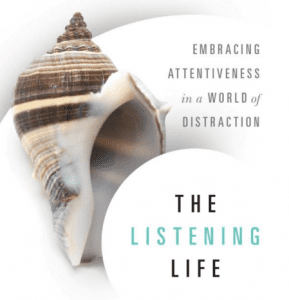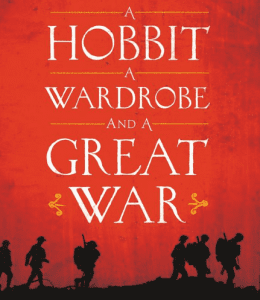 Pastor Alan Cross ministers at Gateway Baptist Church in Montgomery, Alabama. Alan’s terrific, new book, When Heaven and Earth Collide: Racism, Southern Evangelicals, and the Better Way of Jesus, frames the following interview. Alan was interviewed by David George Moore who blogs at www.twocities.org.
Pastor Alan Cross ministers at Gateway Baptist Church in Montgomery, Alabama. Alan’s terrific, new book, When Heaven and Earth Collide: Racism, Southern Evangelicals, and the Better Way of Jesus, frames the following interview. Alan was interviewed by David George Moore who blogs at www.twocities.org.
Moore: What were the circumstances which led you to write this book?
Cross: I was serving as a young pastor at an all white Southern Baptist church in the Deep South city of Montgomery, AL. Montgomery is the birthplace of the Confederacy (first capital) and the Civil Rights Movement. It was the home of Rosa Parks and where Dr. Martin Luther King, Jr. first pastored. I am from New Orleans and a small town in South Mississippi, originally, so,as a Southerner and Southern Evangelical, I understood our racial history. But, I was not prepared for what I learned when I moved to Montgomery.
I knew that Montgomery had a long history of racial division that existed up until the present time. I moved there in 2000 and began to learn about this history in more detail. I ran into a story that was shocking and left me with a lot of “why/how?” questions. Why did something like “this” happen in a city full of churches? Why were white Christians just as given to defending segregation and racism as the larger culture? Why didn’t the white evangelicals who dominated the landscape of the city do something to change things or to stop what happened? Why didn’t the white churches do more to bring healing? The event that sparked these questions occurred when the Freedom Riders came into the city in May, 1961 and were met by a racist mob who beat them mercilessly. The next day, 1500 people gathered at a downtown historically black church to support the Freedom Riders and they were surrounded by a mob of 3000 white people who were making serious attempts to burn the church full of men, women, and children to the ground. The scene was so shocking and disturbing, even for the violence at the height of the Civil Rights Movement in Alabama, that I had to understand it better.
I wanted to take a look at the situation that I had not seen covered before. Primarily, I wanted to understand, “Where was the white evangelical church in all of this?” I wanted to understand why the white churches became subverted by the larger culture and I wanted to understand how that past subversion was still affecting us today – even in ways different from racism – ways theological and social and economic. The book took me around six years to write. I lived with the subject matter constantly and the quest to understand this changed me dramatically. What I found was that the “Way of Jesus” lived out in history tells a much better story than living for a “Southern Way of Life” or an “American Way of Life” or my own small “way of life.”
Moore: A related question to the former is what did you find most difficult in writing this book?
Cross: The most difficult thing in writing the book was in digging beneath the layers and defenses that we use to cover our past affinity with a racist culture. I wanted to understand “why” and “how.” I did not write to cast blame. The horror of how people were treated during that time is readily apparent for all to see. But, getting at the “why” was very difficult. White people in the South do not like to talk about those days – especially people in the church. As soon as you start asking questions, people begin to tell you about the preacher or grandmother or man down the street that they knew who opposed the system of Segregation. I have heard those stories all my life and they are true. Those people exist in my own family. But, knowing those stories does not give insight into why those people stand out. I say that there were trees in the Southern forest that were not racist, but the forest was decidedly racist. And, that forest included the established white churches filled with politicians and businessmen and community leaders who could have ended the system if they would have wanted to. In getting at the “why,” I ran into the reality that things were the way that they were because people wanted things to be that way – and those people included the leaders of the white churches. It benefitted white society to have things separate and it benefitted the church to go along with it and support the segregation and dehumanizing of a race of people. That was troubling, to be sure. Devastating, actually.
Moore: How did the economic priorities (some like to call them economic “realities”) trump biblical fidelity?
Cross: You have to go back to the 1600’s for this story to really take shape. When the English first developed their colonies in the Americas, there was a need for manual labor, especially in Virginia. They tried indentured servants from England and then from Ireland. They tried to use Native Americans a bit, but that was a disaster. They then began to bring West Africans in a similar fashion to what they had done in the Caribbean. The English believed that they were superior to others, so bringing people from other countries to serve them was a natural outgrowth of that sense of superiority. So, the economic impulse came first. Then, the wealthy landowners began to change the laws. Initially, life-long slavery because one was of African descent was not in view. It took a few decades for that reality to develop. When it did, it was aided by the wealthy changing the law to reflect what they needed in the way of labor. White and Black began to be separated at that point for the purpose of labor and the extraction of wealth from the colonies by those who had power. The larger culture went along with this stratification and by the late 1600’s, poor whites and poor blacks were separated too. The Church, instead of opposing this arrangement, largely went along with the flow of economics, law, and culture. The Church gave sanction to it and was thus, subverted. There was some opposition, but in the places where slavery really took root, like the South, the Church generally went along with things. By the time of the Civil War in 1861, the Church was serving as a chaplain to the larger culture on the issue of slavery and race. The reason for this was that the Church supported the larger culture in pursuit of the “Southern Way of Life.” We had a bloody war over it and over 600,000 were killed (some scholars believe the number is as high as 750,000) before the slaves were finally freed. This concept of using the Church to support the pursuit of your own “way of life” did not die out then, though. We still do it today. We use God and religion to get the life that we want and we ask the Church to support and sanction our own quest for personal prosperity and preference. That is the thread that I trace throughout the book up until the present day. I believe that this quest is the number one enemy of discipleship and mission in the church today.
Moore: As a pastor, how do you help those in your congregation see that they may be much more American than Christian?
Cross: Really what I try to do is to highlight the person and work of Jesus and then compare Him to our cultural assumptions and practices. It is amazing how much we want God to bless our own current experience and the pursuit of our own desired “way of life.” But, Scripture calls us to repentance. We are called to repent of trying to get our way and exalt ourselves over others. Actually, according to Philippians 2:1-5, the posture of those who follow Jesus involves seeing others as better than yourself and living to benefit others. So, if we follow Christ, we cannot promote ourselves over others in pursuit of our “way of life.” The root of racism (which is what the Cross goes after) is self-promotion and advancement of ourselves over others. We do not start with reconciliation the way that we understand it. We start with the Cross doing its work in our lives so that we no longer live for ourselves, but we live for Jesus who died for all and who brings us together. We will never see racial reconciliation happen as long as the primary focus on our lives involves our own happiness, preference, and prosperity. So, I ask questions about things that we take for granted. Where should we live? What should we do with our resources? How do we respond to the needs of our city and our neighbors? How are we using religion to benefit us instead of following Christ into the lives of others in need? How can we bring healing to historic divides in our culture? How can we care about what others care about? The American Way of Life does not include all of that. When we follow Jesus, we find ourselves at odds with the American Way rather quickly.
Moore: Cornel West is well-known for saying too many of us Americans are “morally constipated.” How big an issue does that remain for all of us American evangelicals when it comes to race and prejudice?
Cross: I think that it means that we cannot really break through to deal with racial prejudice because we cannot stop thinking about ourselves and what benefits us. If our churches become racially diverse, what will happen to them? What will happen to our own style of worship? What will happen to our traditions? If I am called to love and serve others sacrificially, then what do I have to give up? What will it cost me? If I see people in my community suffering and if I am called to do something about it, then what will I lose? Those are the questions that keep us from finding healing and having more understanding or a “national conversation” on Race never seems to get to the root of the problem. The root of the problem is that I refuse to address issues that I perceive might weaken my own position in the culture or in the church. We do not like to take the lesser seat because we are profoundly insecure about our own status and do not really know how to trust God for our identity. So, we cling to false identities of race, social status, wealth, etc. This perspective exists everywhere, by the way, and it keeps us from actually loving one another sacrificially.
Moore: Were self-professing Christians responsible for Jim Crow?
Cross: Yes. Southern society was a society that was greatly affected by Christianity and the Church. We spoke the language of Zion and politicians and community leaders were members of churches. In the 1960’s, something like 70% of white Alabamians were Southern Baptists. They were the ones who elected the racist politicians and who shopped at the segregated stores. They had political and social power and they could have changed things if they wanted to. But, they did not see their role in society as change-agents. They accepted and promoted the status quo. The status quo benefitted them so they defended it and promoted it along with the rest of the culture. Christians may not have initiated the situation by themselves, but they definitely went along with it and supported it as it developed. Their numbers were so strong that their guilt of not addressing the injustice and oppression of Jim Crow must be laid at their feet. That knowledge is what led me to ask the questions that uncovered the whole thing, and that ultimately pointed me in some very redemptive directions.
Moore: You are careful throughout the book to not treat white evangelicals in the South as monolithic when it came to their response to racism. It does seem fair to say that there was a deeply embedded culture in the South which permitted and/or caused racism, correct?
Cross: Yes, this is true because Southern Evangelical culture was in many ways synonymous with the larger Southern culture. But, similar things were happening in the North with negative results also. The problem was not only found in the South. It is found any time we want to use God as a means to an end of advancing our own “way of life,” which is a condition that is natural to man everywhere apart from the Cross of Christ working on us. The good news is that we can look back and see where the Church sided with the larger culture, whether we are talking about the American South, the consumer-oriented North, Germany under Hitler’s Third Reich, or anywhere that the Church sided with the impulse of the larger culture over the cause of Christ, and we can see the difference in that way of life in comparison to the way that Jesus calls us to walk. The last section of the book explores the “Way of Jesus” throughout history and it gives a strong call to orient our lives around the Cross and to live together in community in ways that represent Jesus to a broken world.
Moore: You include many powerful quotes from Martin Luther King. They are all beautifully written and arresting, but I would like to get you to respond to King’s observation that the modern church is anemic spiritually compared to the early church.
Cross: He makes this case when he talks about how the church has abandoned its mission and the life and work of its founder, Jesus, in how it deals with people in need or who are broken under the weight of an unjust society. King’s prophetic assessment of the white church that he was dealing with is important, especially in his Letter From a Birmingham Jail (1963). But, there is also hope in Dr. King’s words. If we would return to the person and work of Jesus and let Him guide us and be our example, we would see renewal. That promise is for every generation of Christians. Scriptures like Isaiah 58 tell us that if we would act with justice and mercy toward the oppressed, then God would make His light shine like the dawn and our healing would quickly appear. We would restore the foundations and the cities. These are strong words of promise and renewal that are available to all of us. Dr. King was calling the church in that direction. But, we cannot care for others and release the bonds of oppression and injustice if our primary thought is about us, what we will lose, and our own position in society. The gospel works in our lives to place our focus on Jesus and others because He has already secured our healing and redemption through His Cross and Resurrection. We need that confidence before we can truly love others selflessly.
Moore: How might your book give perspective to places like Ferguson, Missouri?
Cross: I think that it can help us see that the biggest enemy that we fight against is not “out there” but inside of us. Yes, there is racism and oppression and injustice. And yes, we, as Christians should stand against that and stand with those who are suffering and seek to bring healing both individually and institutionally. But, we have been jousting at the windmills of Racism for half a century now and Ferguson keeps happening. The only way out is the way of the Cross, the Way of Jesus, which is the Way of Sacrificial love. Violence is not the answer and defending your elevated position in society is not the answer either. The only answer is for Christians to lay down their lives and their self-preservation and suffer alongside one another, to consider the interests of others ahead of their own, to loose the bonds of oppression and injustice, and to do the hard work of rebuilding the ancient ruins and our cities together.
In the book, after we dig deep into what went wrong, I explore how things can be and are being set right by those who are loving others with the sacrificial love of Jesus. We will keep having Fergusons. America will remain at odds with itself and its history. The real question is, “How will the Church now respond?” As Eugene Peterson asks, how can we be “colonies of Heaven in the country of death?” Unless we, as Christians both black and white, Asian, and Hispanic, see our whole communities as our own responsibility, we will not be able to provide a witness to the Kingdom of God that is breaking in through Christ. We have to stop looking at these things according to fleshly identities and realities and see the world according to the reality of the New Creation as we live, together, as Ambassadors of Christ. Ultimately, that is what the book is finally about: what it means to live for Jesus in a world gone mad.











